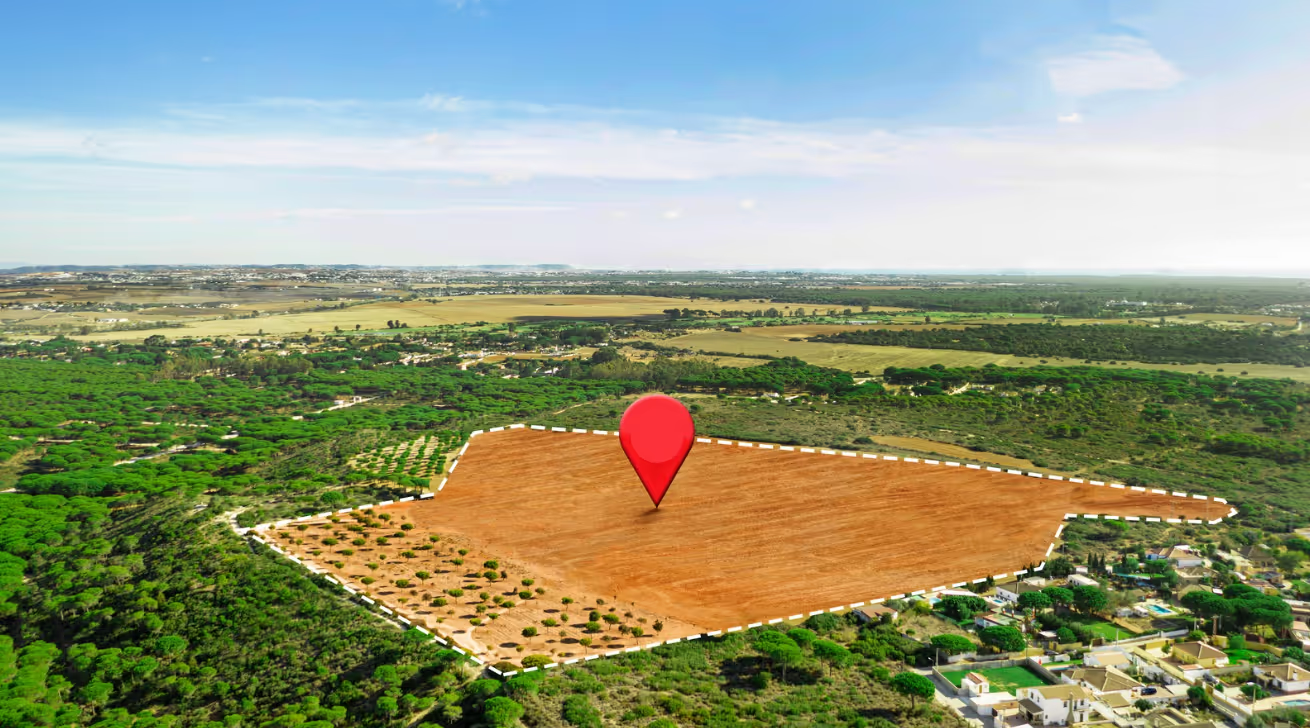The EU Deforestation Regulation (EUDR) has set a clear objective - to ensure that commodities placed on the EU market are not contributing to deforestation or forest degradation. A key part of this is the traceability requirement, which obliges operators to know exactly where their products came from, down to the geolocation coordinates of the plot of land.
In this blog, we’ll explain what is meant by “Declaration in Excess” (1.18) when this is allowed, why it is necessary in certain cases, and the implications operators need to be aware of when taking this route. We’ll also outline the recently introduced due diligence for multiple batches/shipments (5.19) - included in the April 2025 FAQ update.
What is Declaration in Excess?
The EUDR is based on strict traceability, meaning that every product or commodity must be linked to the specific plots of land where it was grown or produced. In principle, this ensures full supply chain transparency and enables the EU and its member states to verify that only deforestation-free goods enter the market.
But the regulation recognises that the reality of commodity supply chains is often more complex. In industries such as paper, packaging, palm oil and coffee, production processes rely on inputs from multiple sources to create one single product. In the case of paper, a single paper notebook could contain hundreds of potential points of harvest. In such situations, it is technically possible to trace the commodity to compliant plots of land, but difficult to match each physical product to a precise plot once mixed. This is where a declaration in excess comes into play.
When is a Declaration in Excess allowed?
The October 2024 EUDR FAQ focused on operators declaring more plots of land than strictly necessary for scenarios when:
- The commodity is fully traceable to known, compliant plots of land.
- The mixing only involves commodities of known and compliant origin - not with unknown or non-compliant material.
- The operator is only placing a part of the mixed batch on the market.
For example, if a ship carries soybeans from ten compliant farms but only part of the cargo is destined for the EU, operators may list all ten farms in their Due Diligence Statement (DDS), even if only six supplied the EU-bound soy.
What does a Declaration in Excess Mean for operators?
While this option adds flexibility, it comes with significant responsibility:
- The operator is legally responsible for verifying the compliance of all plots declared, including the “excess” ones not directly linked to the product sold.
- If just one of the declared plots is found to be non-compliant, the entire Due Diligence Statement would be declared non-compliant.
- Full due diligence must be conducted on every plot declared, as if each plot directly contributed to the commodity.
Operators and traders who rely on declaration in excess may want to check that their customers and downstream supply chain participants are willing to accept DDS based on the provision. If a non-SME operator receives goods with a DDS based on declaration in excess from their supplier, the operator may be obliged to conduct full due diligence themselves (if processing the goods), or ascertain that the supplier conducted due diligence. Doing this based on declarations in excess upstream in supply chains may prove extremely burdensome for such downstream customers.
In practice, this means:
- A complete risk assessment must be performed for all declared plots.
- Be able to demonstrate confidence that goods came only from the declared plots.
- The operator must prove that:
- The risk of non-compliance is negligible across all plots (deforestation-free and legally compliant).
- They have assessed specific risks under Article 10(2) of the EUDR, such as:
- Difficulty connecting products to plots.
- Risk of circumvention or mixing with unknown or non-compliant goods.
- All identified risks have been effectively mitigated before the commodity is placed on the EU market.
Another risk which must be considered relates to the volume of investigations national Competent Authorities are mandated to conduct for EUDR enforcement - Article 16 of the Official EUDR documentation.
Using declaration in excess: If operators rely on declarations in excess in the scenario where they have conducted due diligence on 1000 points of origin, including them all in one DDS, if that DDS is selected to be investigated, then the operator’s due diligence on all 1000 points of origin (and all other supply chain participants between the origin and the operator) will be part of the investigation.
Not using declaration in excess: Based on the above example, if the operator submits a DDS for each inbound deliveries linked to the 1000 points of origin, not relying on declaration in excess, and one DDS is selected to be investigated by the Competent Authority, then only the points of origin (and other supply chain participants between the point of origin and the operator) will be investigated, not all 1000.
The time cost (and stress) of such an investigation should not be underestimated.
The benefits of relying on declaration in excess for your own DDS submissions:
- Where the operator has stable supply chains, it allows them to re-use due diligence and risk assessment, helping with DDS submissions at scale. This is proving to be particularly of interest to non-SME operators who handle thousands of deliveries annually. Note that your due diligence requires a time-based assessment for deforestation. You cannot rely on due diligence carried out for location dated before the harvest date of your inbound goods.
- Related to the above, this can result in time and cost savings. Not least when it comes to managing the logistics behind internal traceability and linking each inbound item to each outbound item.
What is Not Allowed?
It is important to stress that broad or imprecise declarations will not be accepted under EUDR. Declarations must be made at the plot level, not at generalised scales, to enable regulators to carry out effective checks under Article 16 of the Regulation.
Operators cannot:
- Declare an entire region, province, or country as the origin.
- Use a declaration in excess to bypass risk assessment or due diligence obligations.
- Make the work of Competent Authorities more difficult by diluting traceability.
What About Submitting Due Diligence for Multiple Batches and Shipments?
5.19 How often should due diligence statements be submitted in the Information System, and can they cover multiple shipments/batches? What about situations where relevant products may be placed on the market successively over a period of time?
A due diligence statement can cover multiple physical batches/shipments of multiple different relevant products. In these situations, the operator (or non-SME trader, see Art. 5(1) EUDR) has to confirm that due diligence was carried out for all relevant products intended to be placed on, made available on the Union market, or exported and that no or only a negligible risk was found that the relevant products do not comply with Art. 3, point (a) or (b), of the Regulation (Annex II) and that the operator assumes responsibility for the compliance of the relevant products with Art. 3 EUDR (Art. 4(3) EUDR).
The recently released FAQ guidance (April 2025) explained it allows operators (and non-SME traders) to submit a single due diligence statement for multiple physical batches/shipments over a period of up to one year.
This is permitted provided that due diligence has been carried out for all relevant products intended to be placed on the market and there is no or negligible risk of non-compliance. The operator retains responsibility for the compliance of all products covered by the statement. This measure aims to reduce the administrative burden by decreasing the number of required DDS submissions. However, the additional complexity may increase the risk of non-compliance.
Why It Matters
This allowance helps accommodate the practical realities of commodity production while maintaining the integrity of the EUDR’s mission. However, operators must approach declarations in excess cautiously. Failing to assess risks adequately or declaring non-compliant plots can have serious consequences, including loss of market access and potential legal action.
At Interu, we support organisations in navigating these challenges with confidence by handling the complexity of traceability. We allow organisations to submit a DDS based on specific shipments or purchase orders with specific points-of-origin (non-excess) and are adding the ability to submit a DDS based on multiple shipments and even a “predictive” DDS, that is a DDS based on expected volume of shipments. Our approach to traceability means we can link each DDS on multiple inbound deliveries with an outbound delivery allowing the generated DDS to reference each related DDS. As we have direct integration with the Traces NT system this can be automated.
We also provide for integrations with your internal systems (such as ERP or WMS systems) so that DDS References (and where appropriate its validation code) can be automatically retrieved for inclusion in customs/customer documentation.
Ready to Simplify EUDR Compliance?
Whether you're handling hundreds of shipments a year or working with complex multi-origin commodities, Interu makes it easy to stay compliant - without getting buried in paperwork.
Book a personalised demo today to see how our platform can help you automate DDS submissions, reduce risk, and streamline your operations - whether you're declaring shipments individually or using declaration in excess.
Request a Demo or get in touch at contact@iov42.com.




.png)
